The best races of the last decade
There have been countless standout racing moments in the last 10 years, but here are the big ones
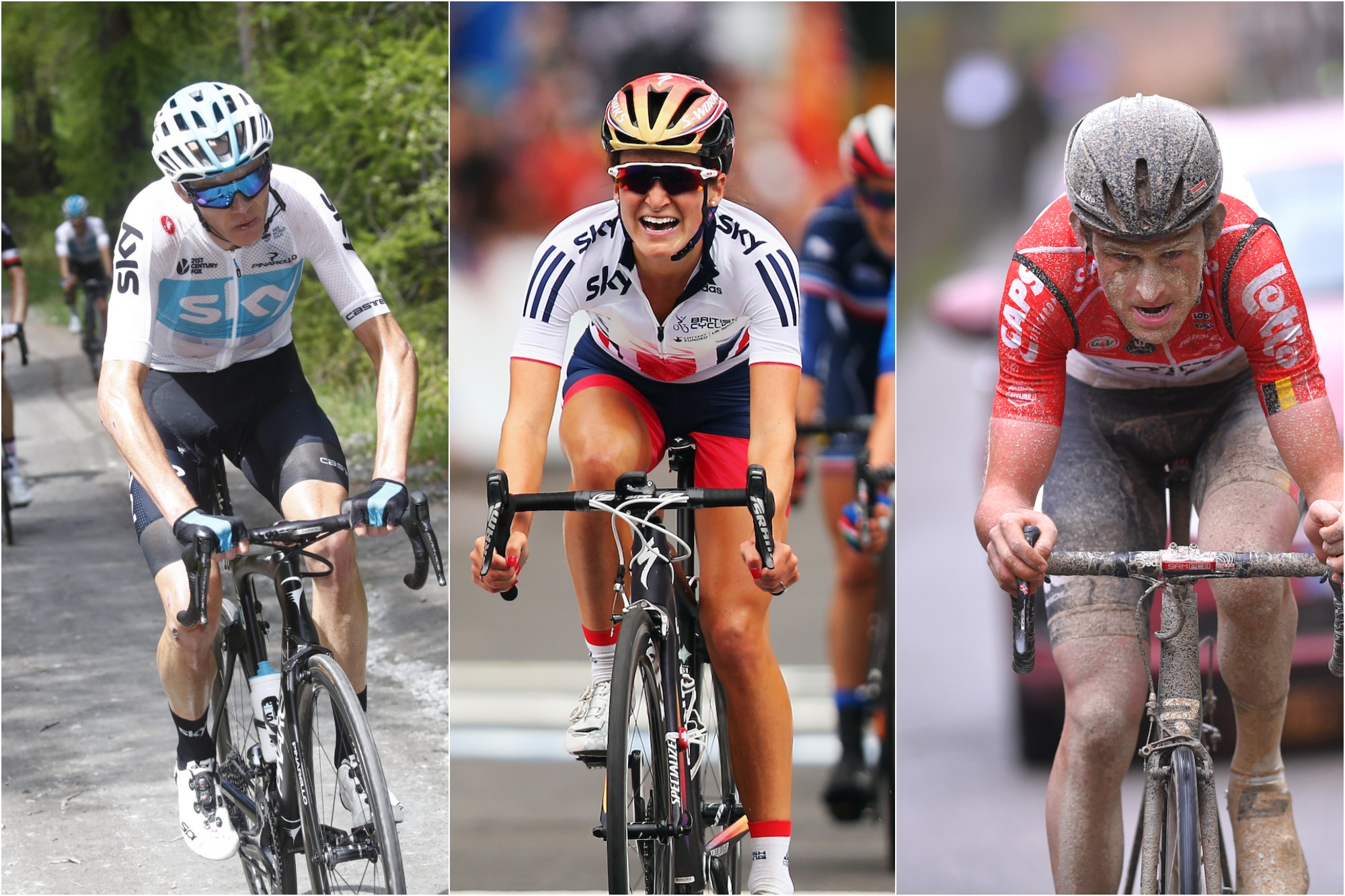

The end of 2019 marks more than just another changing season, it also carries us into a new decade.
While we have some indication of what the next 10 years of bike racing may hold (e-Olympics perhaps?), it’s also worth reflecting on a monumental decade of bike racing.
Off the bike budget inflation for teams, the Team Ineos era, and equality between men’s and women’s racing have been the biggest topics, but what are the most memorable moments on the bike?
We take a look back from 2019 to the start of the 2010s and decide which races were truly the greatest of the decade.
Not ranked in any particular order, here they are:
Strade Bianche 2018
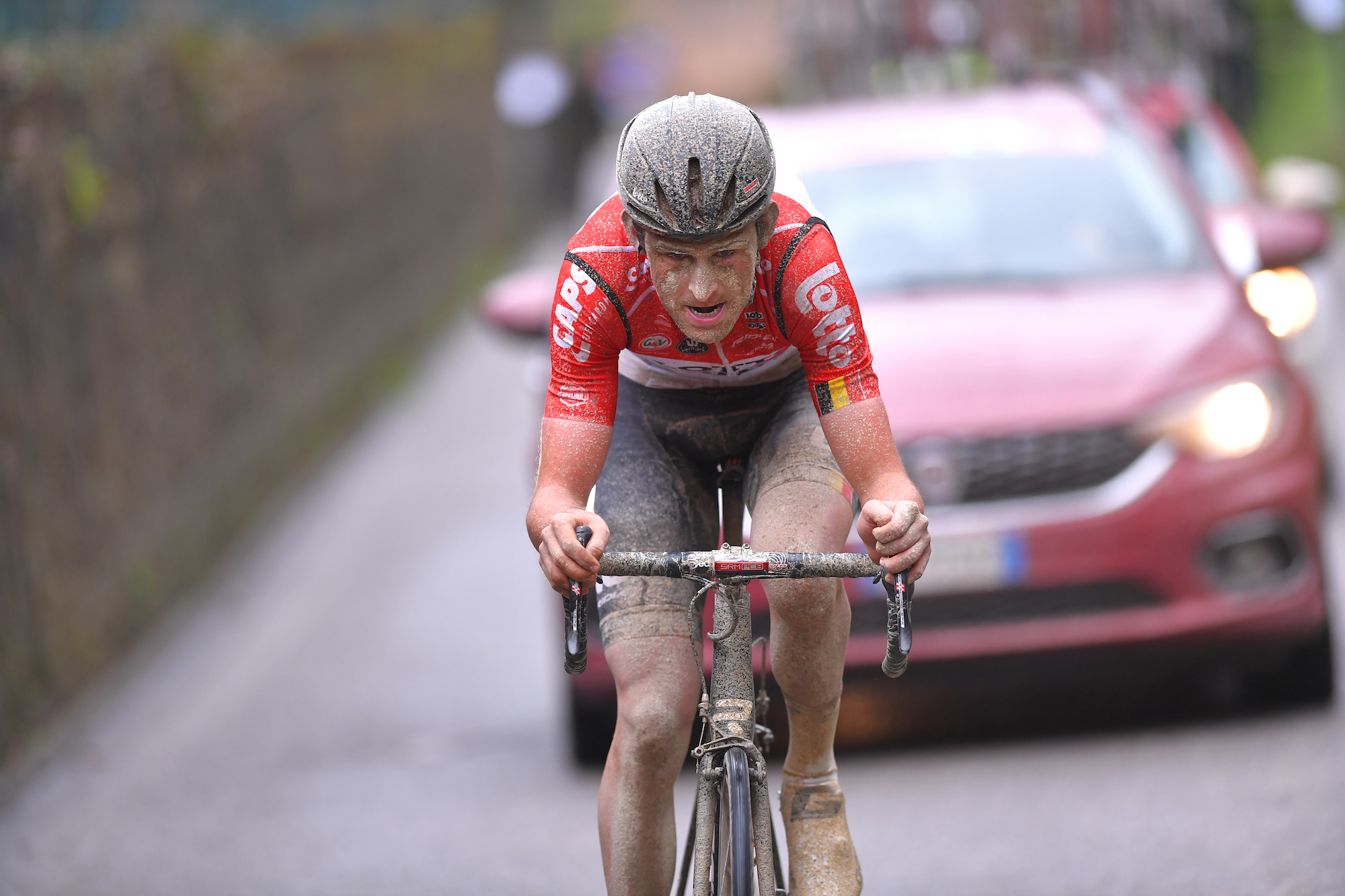
Strade Bianche was only launched in 2007, a mere pup compared to some of cycling’s more ancient one-day races, but there is a reason it has fired to prominence, to the point some have argued it should be heralded as the sixth Monument.
Get The Leadout Newsletter
The latest race content, interviews, features, reviews and expert buying guides, direct to your inbox!
The 2018 edition of this race epitomised why it is such a special event.
Unpredictable March weather in central Italy combined with the now-iconic unpaved roads that give Strade Bianche its name to give us some truly memorable images.
An attritional battle played out on the road between Wout van Aert, Romain Bardet and Tiesj Benoot.
It was Benoot who triumphed on the picturesque climb through Siena, giving us the unforgettable images of a dirt-plastered Belgian riding to the finish alone, as Wout van Aert cramped and fell to the floor on his way to third, collapsing again at the line.
Tour de France 2011
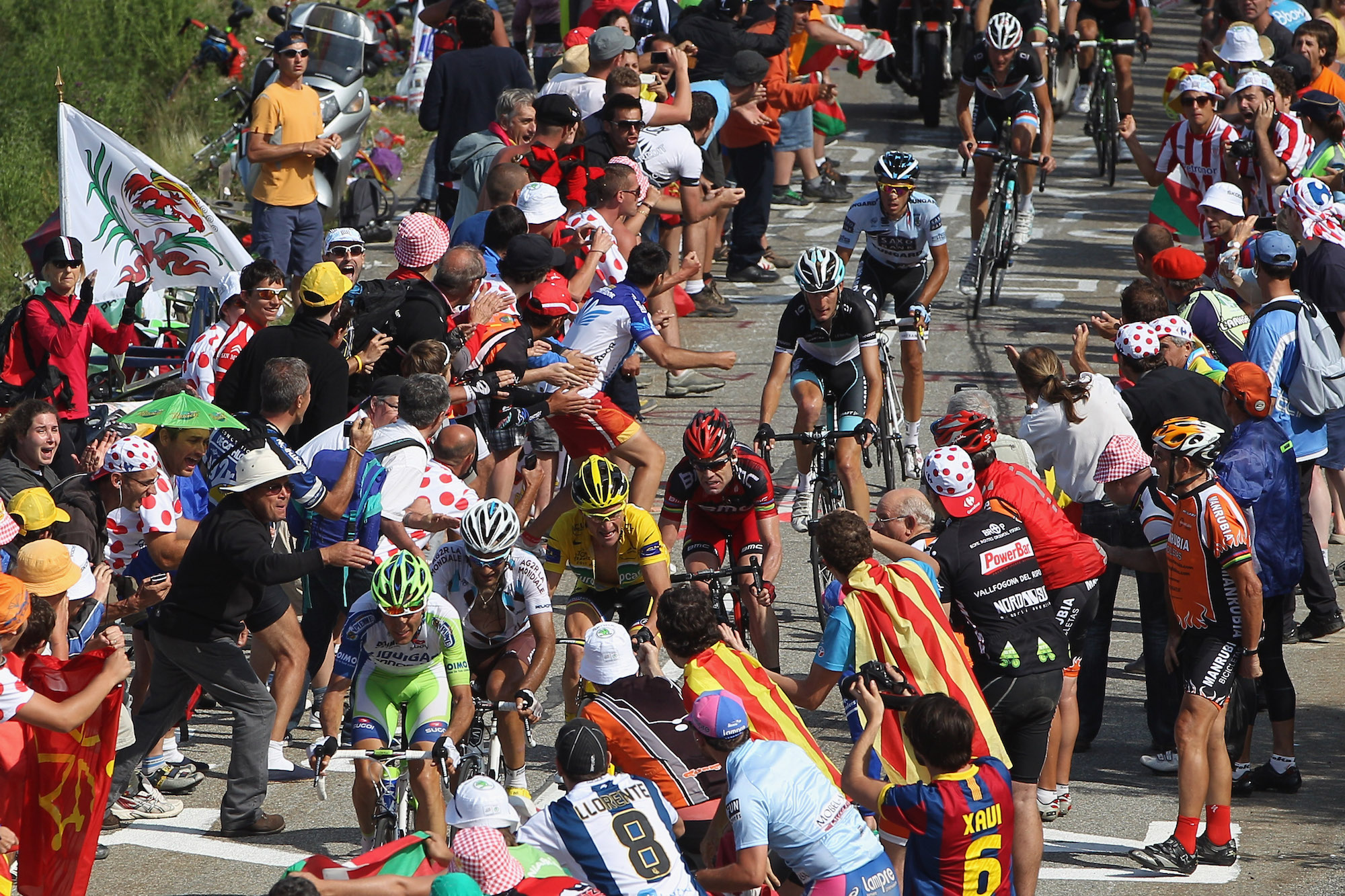
There have been two editions of the Tour de France in the last decade that will stand the test of time.
Both the 2011 and 2019 editions both have moments that will cement their places in the cycling history books, but it’s the 2011 edition that will be remembered as the best edition of the last decade.
For British fans, it may be remembered as a year of dominance by Mark Cavendish as the sprinter won five stages, or as the year Team Sky’s hopes of the yellow jersey were dashed when Bradley Wiggins crashed out with a broken collarbone.
But in the fight for the overall classification, it was the French who were on the edge of their seats as wildcard Tommy Voeckler sailed into the race lead from a breakaway on stage nine to become the unexpected protagonist during a finely balanced final week of the race.
Voeckler led the race for nine stages before he was finally forced to hand over the yellow jersey to Andy Schleck on the slopes of Alpe d’Huez, his brother Frank Schleck then in second with Cadel Evans third at 57 seconds.
But that still wasn’t the end of the story, as Cadel Evans stormed into the race lead on the stage 20 time trial, finishing second on the stage behind Tony Martin and securing his first and only Grand Tour victory.
Paris-Roubaix 2012
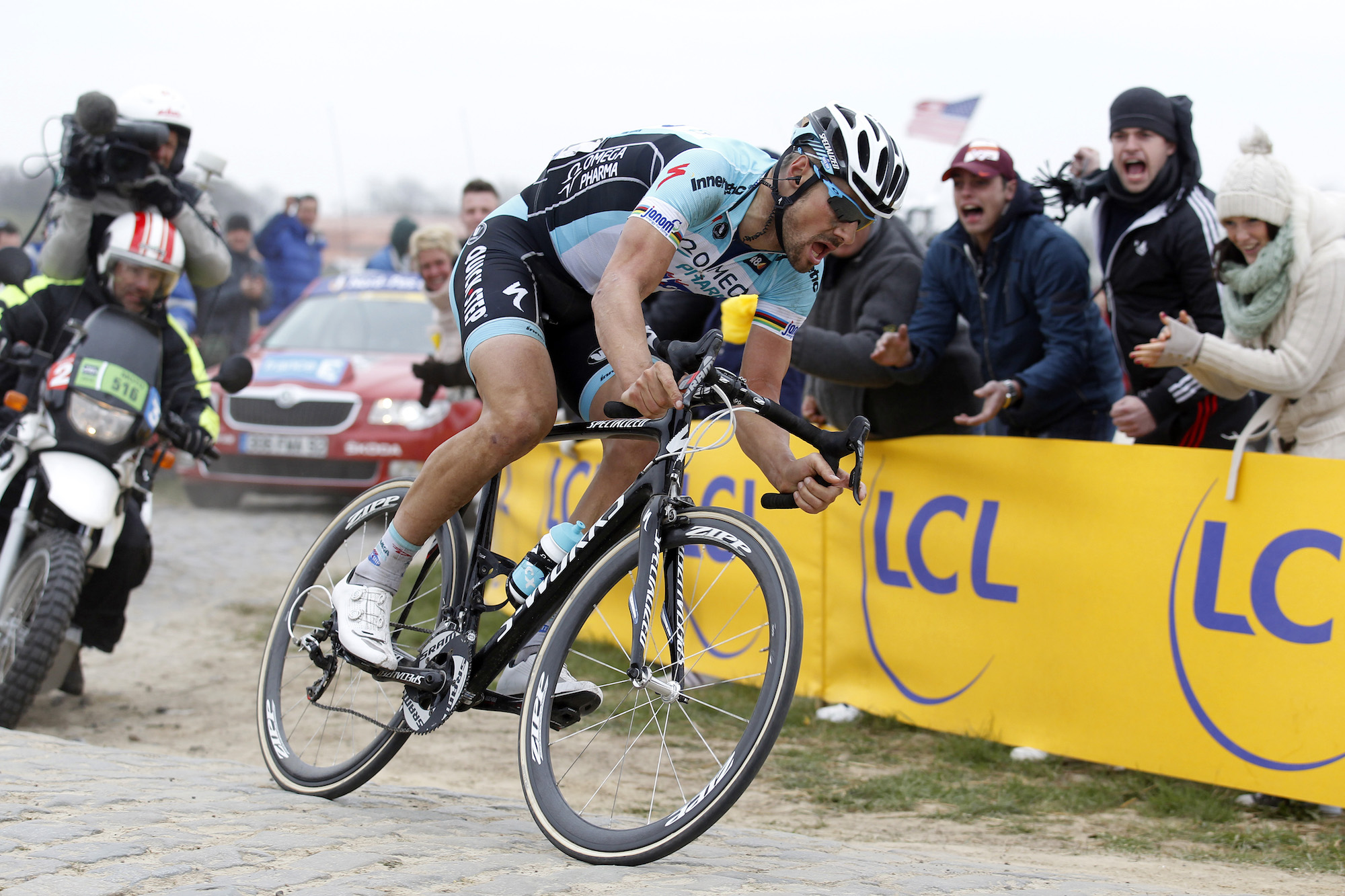
The joy of Paris-Roubaix is that almost every edition could enter cycling lore as one of the greatest races in history, but the 2012 stands out amongst the rest from the last decade.
With three Paris-Roubaix titles to his name when he lined up at the start of the 2012 edition, Tom Boonen was a marked man, and with his great rival Fabian Cancellara out after a crash at the Tour of Flanders the week before, the race looked wide open.
Boonen sailed away from his rivals with 56km left to race, with his team-mate Niki Terpstra in tow, but Terpstra couldn’t hold Boonen’s wheel and left the Belgian to his enormous 50km solo ride.
Crashes and chaos unfolded behind as Boonen sailed further and further away, eventually entering the historic velodrome 1-39 ahead of the rest and securing his fourth and final career Paris-Roubaix title.
Giro d’Italia 2018, stage 19
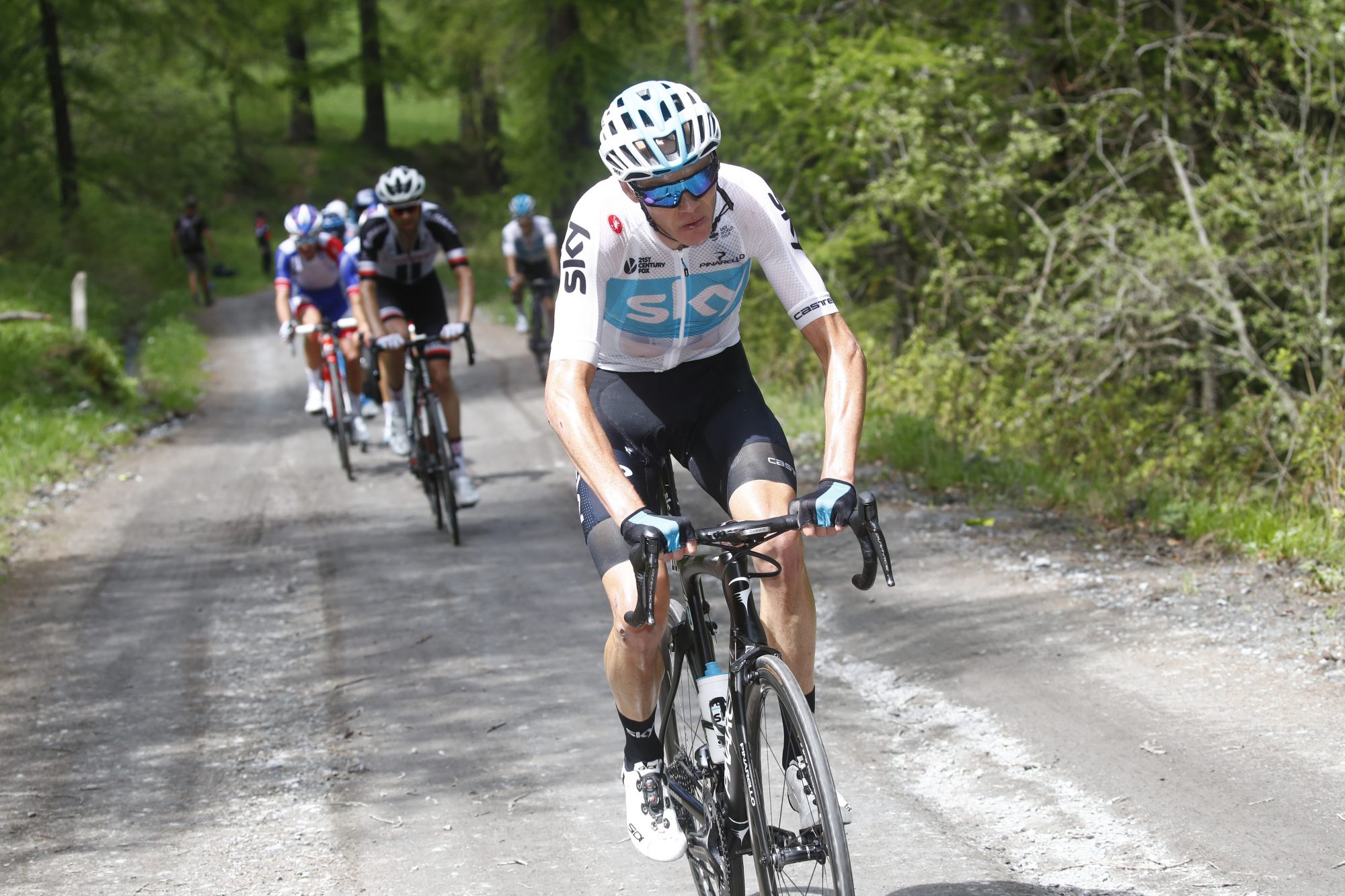
Not only will this ride go down as one of the greatest of the decade, it’s undoubtedly among the greatest of history.
To set the scene, Chris Froome lined up at the start of stage 19 of the 2018 Giro d’Italia all but out of contention for the pink jersey.
After crashing during the recon of the opening time trial, Froome had consistently lost time over the three weeks until he was 3-22 down on race leader Adam Yates with just two mountain stages to race.
But immediately on the road to Bardonecchia, the race exploded.
Yates suffered an enormous crack and disappeared from the front of the race, not to be seen again, setting Tom Dumoulin up to take over the pink jersey.
Bizarrely, Team Sky took their familiar place at the head of the peloton, setting a blistering pace on the Colle delle Finestre with 80km still to race, when Froome upped the cadence in his trademark style and launched his fatal attack.
No one chased, as it seemed unlikely Froome could score any more than a stage win with a solo attack that big, and even that seemed unlikely.
But Froome’s advantage never slipped on the Sestrière and by the finish he had picked up an enormous three-minute advantage over his nearest rivals.
The stage secured Froome’s first Giro d’Italia overall title and completed his set of Grand Tour victories.
Tour of Flanders 2017
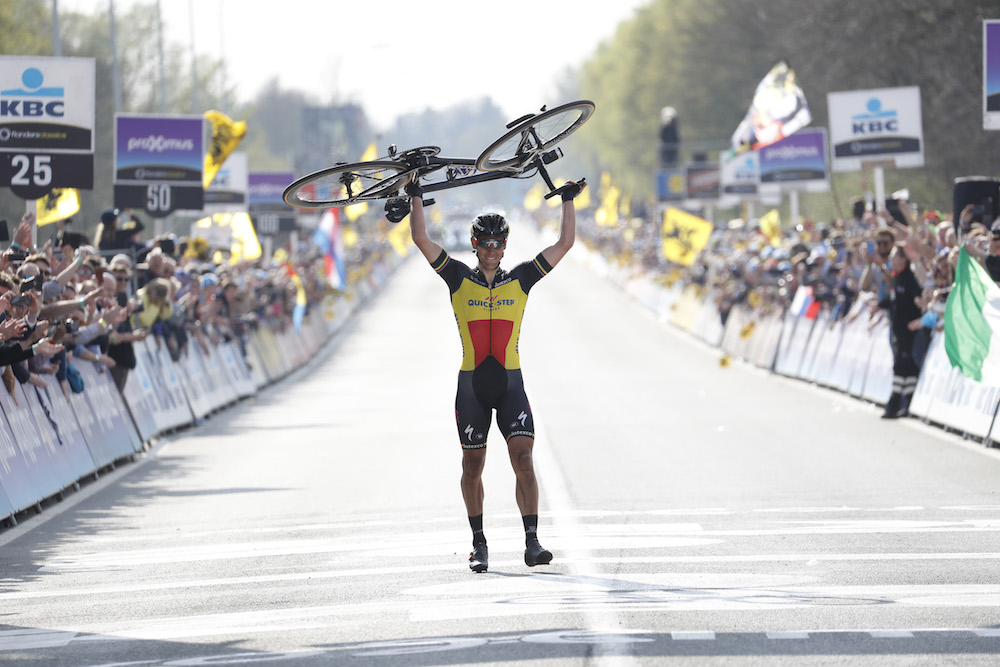
Enormous solo victories are less frequent in modern cycling, as the gaps in technology and fitness narrow, but have still been a few in the last decade that will stand the test of time.
In 2017, Philippe Gilbert entered the Tour of Flanders in the Belgian national champion’s jersey and with a new team.
With 55km to race, the Belgian rode away with nothing more than a glimmer of hope that he might make it to the line.
But as the kilometres ticked away, Gilbert built his advantage to almost a minute and he still looked strong.
The chase kicked off with 36km to race, as Peter Sagan kicked form the peloton with Greg Van Avermaet and Oliver Naesen on his wheel, but disaster struck the pursuers when Sagan caught his handlebar on a fan’s jumper resting over the barriers and went down, taking Van Avermaet and Naesen with him.
With that crash,the story was written, as Gilbert won Flanders with a memorable 50km solo breakaway.
Vuelta a España 2012, stage 17
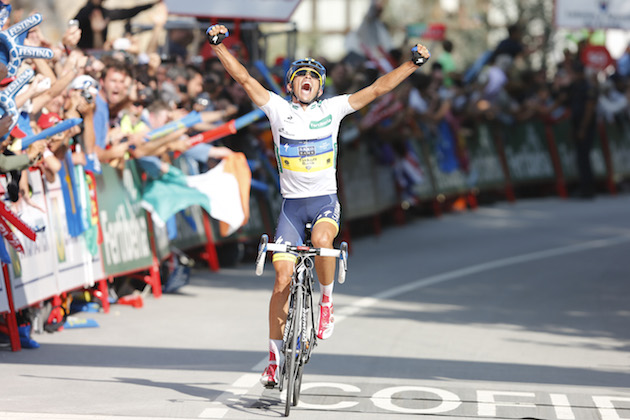
This list wouldn’t be complete without a performance from one of the greatest Grand Tour riders of the last 10 years – Alberto Contador.
In the 2012 edition of his home Grand Tour, Contador was second overall and trailed his compatriot Joaquim Rodríguez by 28 seconds when he launched his attack on stage 17 with 23km to race.
Flying to the summit, Contador applied enough pressure to dispatch Rodríguez and hold off Alejandro Valverde.
The stage victory propelled Contador into the leader’s jersey and gained him a second Vuelta title.
Tour of Flanders Women 2017
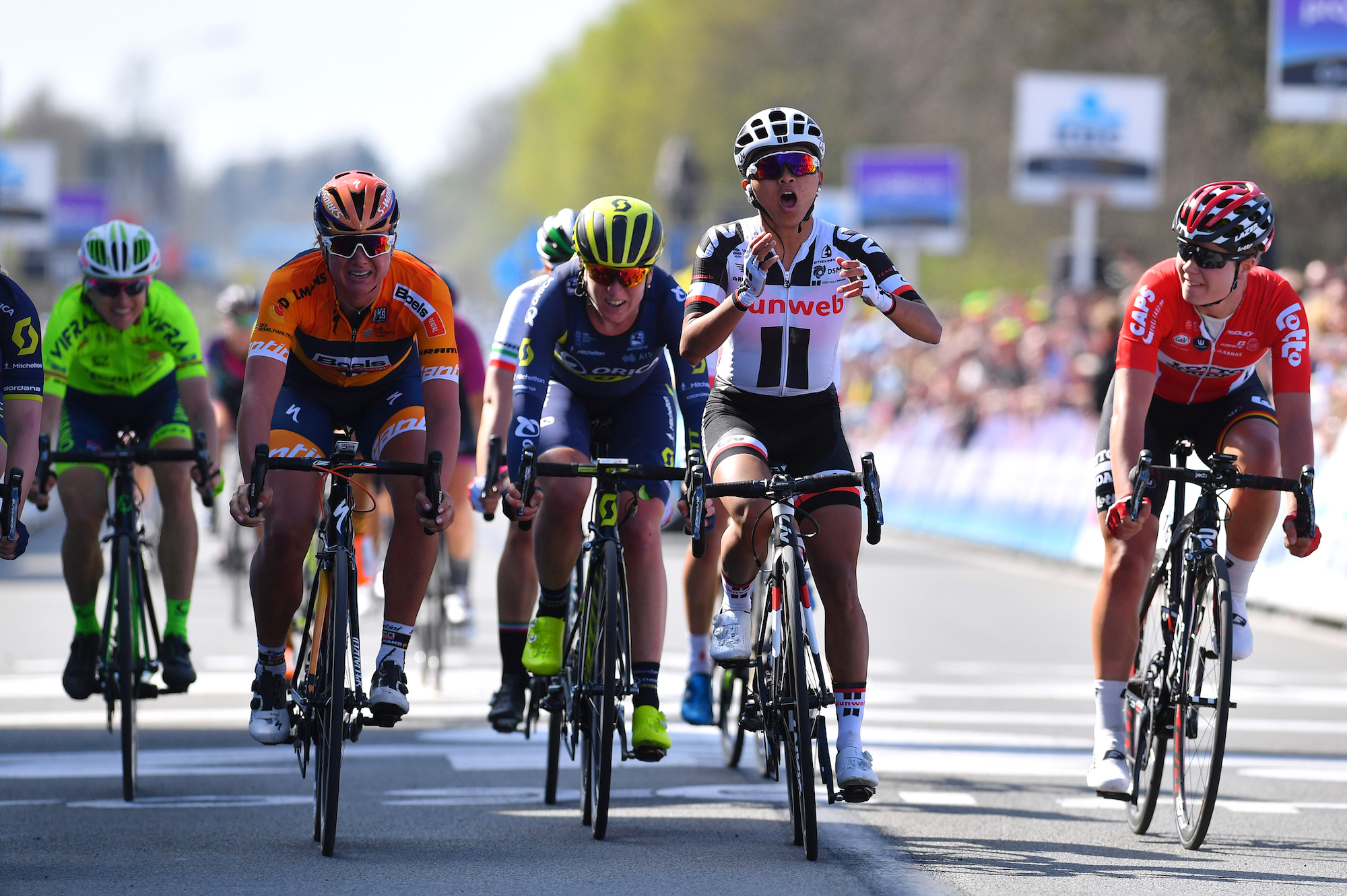
The 2017 edition of the women’s Tour of Flanders looked like it would come down to four elite riders who had formed a break late on – with Elisa Longo Borghini, Katarzyna Niewiadoma, Anna van der Breggen and Annemiek van Vleuten present you wouldn’t bet on a bunch sprint.
But with just one kilometre to the line, that group were caught by a 15-rider chasing group, which set up a nail-biting run to the line.
It was a confident Coryn Rivera who opened her sprint early 300 metres from the line, but with her head down and pure determination on her face she was able to narrowly hold off her rivals to take the win.
The victory took it’s toll, as a teary Rivera collapsed at the line having given everything in the sprint.
World Championship road race 2015
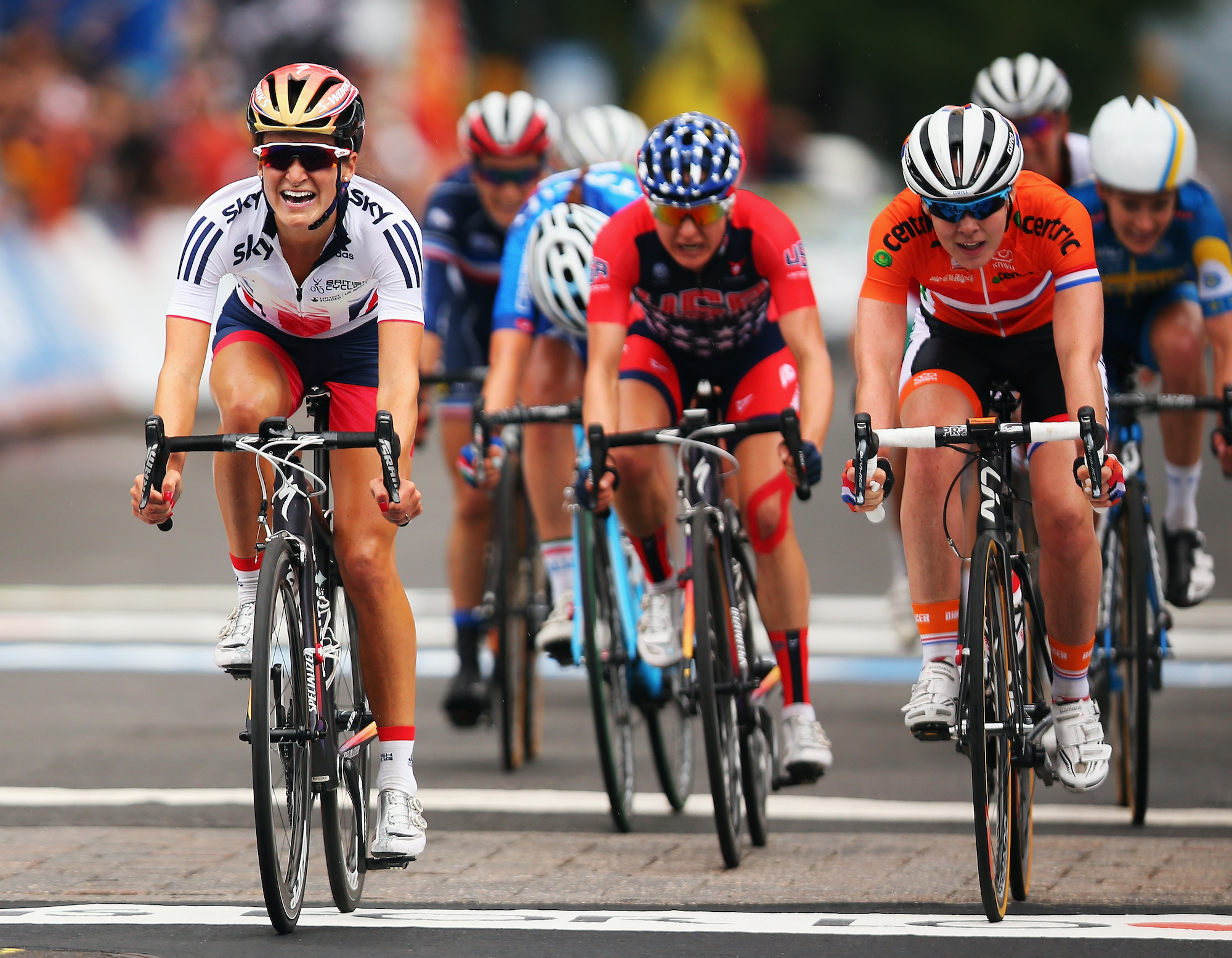
The stakes are so high in the World Championship road race that composure under pressure can often be the defining factor – that’s exactly what we saw when Lizzie Deignan took her unforgettable victory in the 2015 Worlds in Richmond, USA.
With a big break up the road, Deignan had to be completely calm throughout the race and avoid showing her cards early as a rider guaranteed to be marked.
The breakaway still held a slight advantage with just 2km left to race, but were eventually caught by a large group to set up the sprint.
Unhappy with the chances, Deignan fired an attack on the last climb and split the race to pieces, reducing her competition.
However, that showed her rivals how strong Deignan was, as her rivals sat on her wheel into the final straight.
Perfectly poised, Deignan waited for Anna van der Breggen to launch her sprint and slipped back a few places, before launching her attack and narrowly taking it at the line.
It was a peerless performance of tactics and strength, capped with an outstanding sprint performance for a well-deserved world title.
La Course 2018
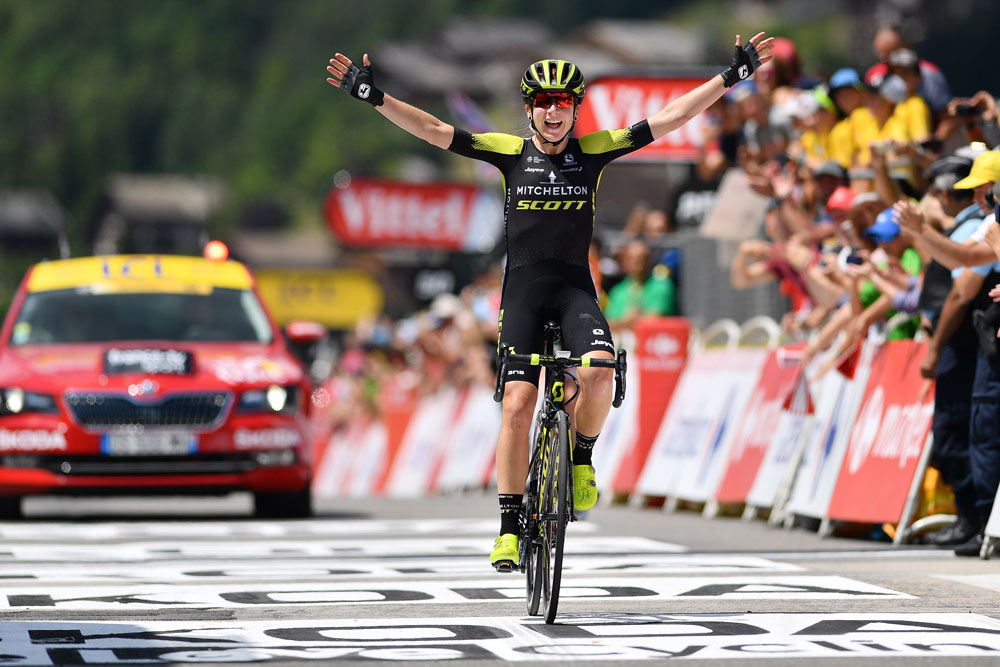
We’ve had some phenomenal rivalries over the last 10 years, but arguably the best has been that of Annemiek van Vleuten and her compatriot Anna van der Breggen.
The Dutch pair have traded victories in the biggest races, but none was more exhilarating that the 2018 edition of La Course by Le Tour de France.
Van der Breggen looked to be the strongest rider as she rode clear of her rivals on the Col de la Colombiere, but Van Vleuten was shadowing her closely and pushed Van der Breggen all the way on the descent.
They pair reached the top of the final rise within 10 seconds of each other, Van der Breggen narrowly clinging to her lead.
With just 25 metres to race, Van Vleuten finally caught her rival and just passed her at the line in a heartbreaking moment for Van der Breggen.
Milan-San Remo 2017 (Honourable mentions to 2018 and 2013)
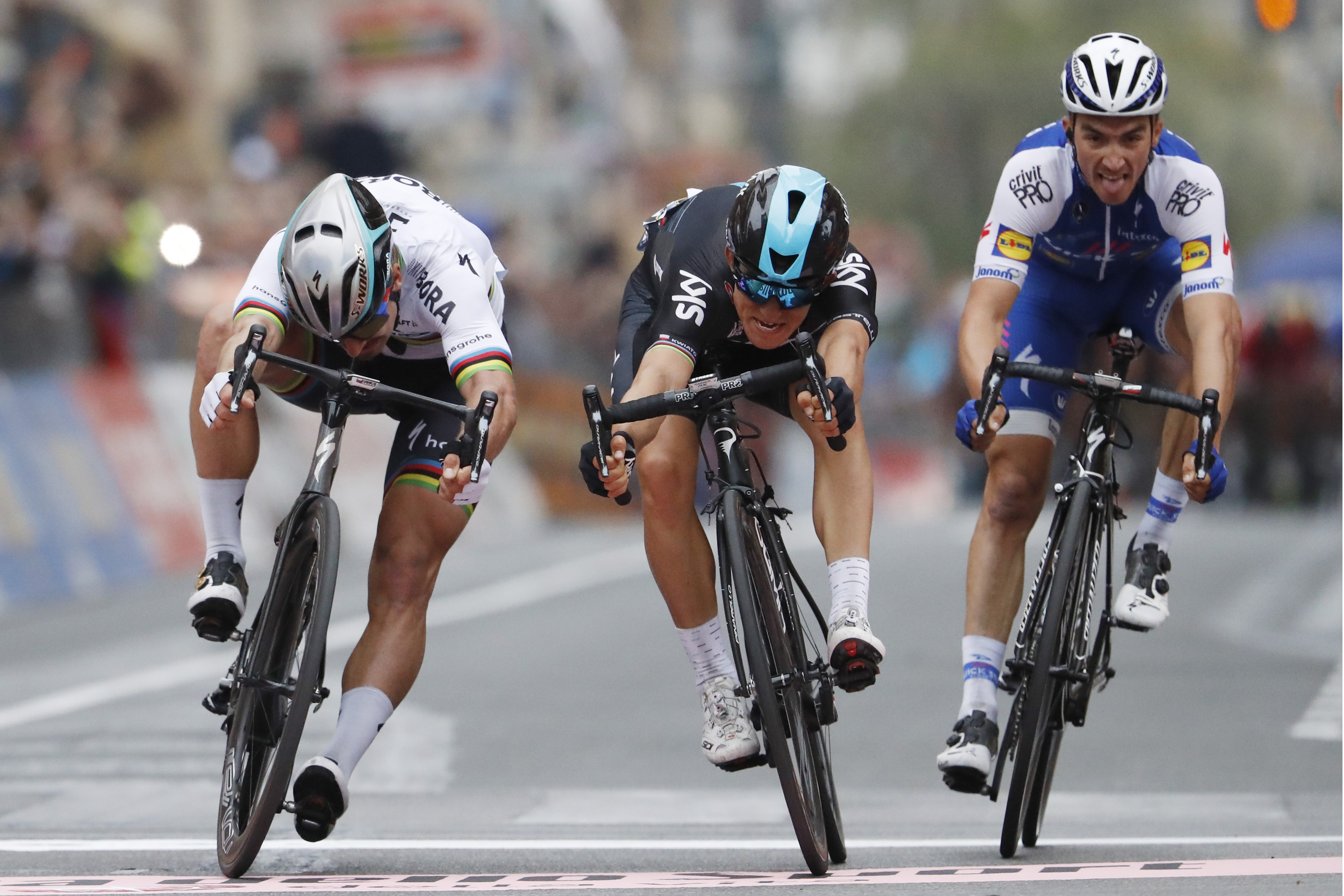
(Photo: Yuzuru SUNADA)
As longest one-day race on the calendar, and a race generally reserved for the sprinters, Milan-San Remo could on paper be the most uneventful race of the year.
However, the iconic final 20km and the constantly building tension mean there have actually been a collection of stand-out editions of the race.
Vincenzo Nibali’s solo breakaway in 2018 to deny the sprinters is absolutely worth an honourable mention, as a phenomenal performance against the odds.
The 2013 edition will also be long-remembered by the cycling world for the horrendous weather conditions, with snow and ice battering the peloton with the race organisers opting to temporarily neutralise the race, Gerald Ciolek eventually taking the title when the race restarted.
But the honours for best San Remo of the decade go to Michał Kwiatkowski from the 2017 edition.
Peter Sagan kicked off the decisive move on the Poggio that year, with Kwiatkowski and Alaphilippe following close behind.
The trio held their advantage on the descent into San Remo, setting up a three-up sprint for the line with Sagan the clear favourite to take the honours.
Sagan led from the front into the final straight and launched his sprint first, but both Kwiatkowski and Alaphilippe drew level with him at the line, the race coming down to a three-way bike throw.
Sagan and Kwiatkowski also collided after the line, with both riders managing to stay upright after the most memorable photo-finish of the last 10 years.
Amstel Gold Race 2019
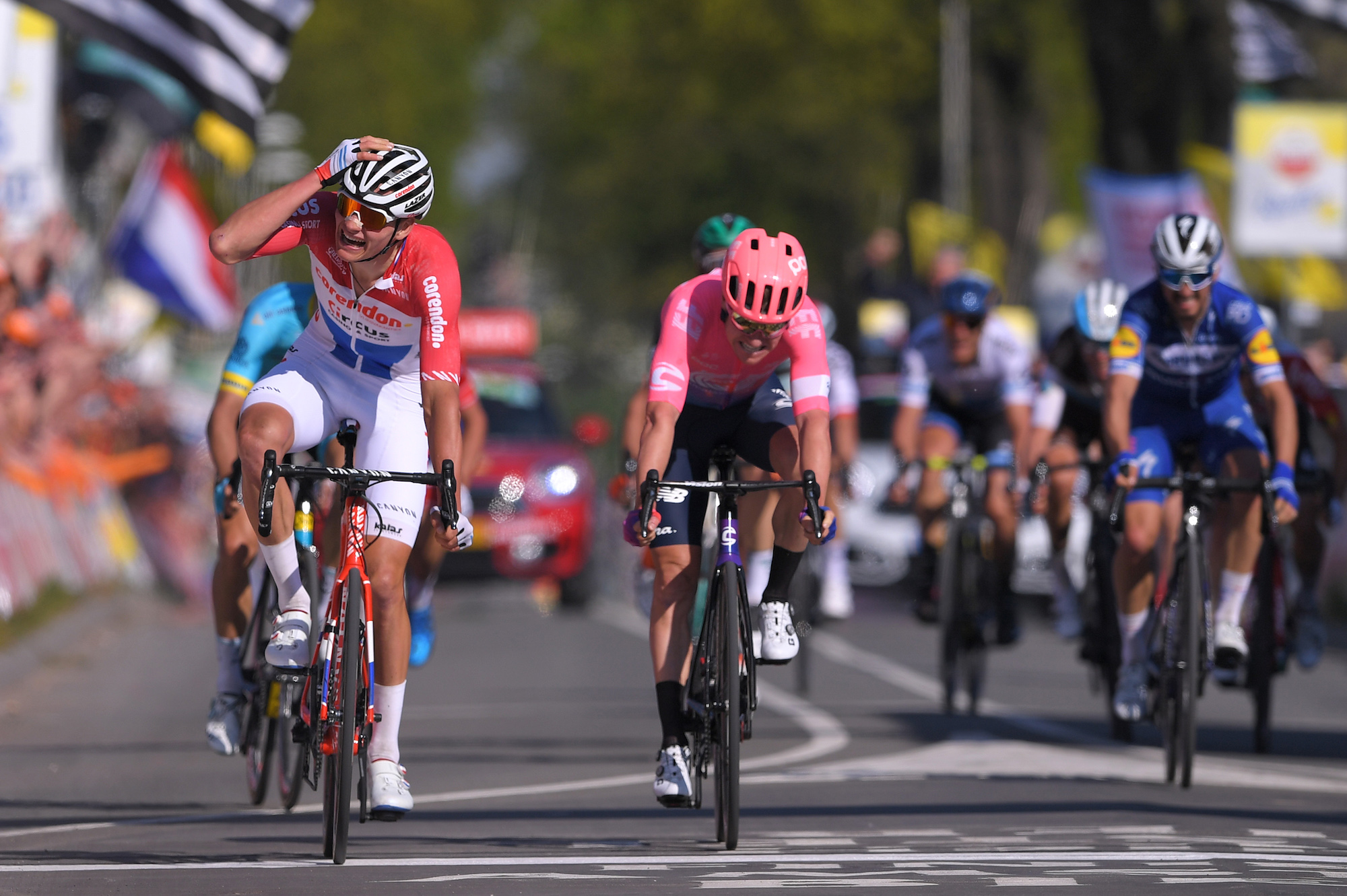
For many, this will go down as the greatest race finish in history.
Mathieu van der Poel’s arrival onto the road racing scene can be characterised by his performance in Amstel Gold Race in 2019 – he arrived, he attacked, he dominated.
Just four days after victor in Brabantse Pijl, Van der Poel was once again animating Amstel Gold, attacking with 43km to go up the Guiperberg but being reeled in just 4km later.
Van der Poel then missed the decisive breakaway with 36km to race, which resulted in Julian Alaphilippe, Jakob Fuglsang and Michał Kwiatkowski going clear and heading for the line.
It looked like the outcome was settled and one of these trio would take the glory, but Van der Poel had other ideas.
The Dutchman powered at the front of the peloton, as the escapees still had 40 seconds with 3km to go, but as the race hit the flamme rouge Van der Poel emerged ominously behind them.
Cyclocross world champion Van der Poel caught Alaphilippe and Fuglsang, continued sprint and soared away to take his first ever Amstel Gold victory, a truly remarkable performance.

Thank you for reading 20 articles this month* Join now for unlimited access
Enjoy your first month for just £1 / $1 / €1
*Read 5 free articles per month without a subscription

Join now for unlimited access
Try first month for just £1 / $1 / €1
Alex Ballinger is editor of BikeBiz magazine, the leading publication for the UK cycle industry, and is the former digital news editor for CyclingWeekly.com. After gaining experience in local newsrooms, national newspapers and in digital journalism, Alex found his calling in cycling, first as a reporter, then as news editor responsible for Cycling Weekly's online news output, and now as the editor of BikeBiz. Since pro cycling first captured his heart during the 2010 Tour de France (specifically the Contador-Schleck battle) Alex covered three Tours de France, multiple editions of the Tour of Britain, and the World Championships, while both writing and video presenting for Cycling Weekly. He also specialises in fitness writing, often throwing himself into the deep end to help readers improve their own power numbers. Away from the desk, Alex can be found racing time trials, riding BMX and mountain bikes, or exploring off-road on his gravel bike. He’s also an avid gamer, and can usually be found buried in an eclectic selection of books.
-
 'It took everything' - Puck Pieterse outclimbs Demi Vollering to win La Flèche Wallonne
'It took everything' - Puck Pieterse outclimbs Demi Vollering to win La Flèche WallonneDutch 22-year-old shows Classics pedigree with first one-day victory
By Tom Davidson
-
 Tadej Pogačar flies to dominant victory at La Flèche Wallonne
Tadej Pogačar flies to dominant victory at La Flèche WallonneSlovenian takes second win at Belgian classic ahead of Kévin Vauquelin and Tom Pidcock
By Tom Thewlis